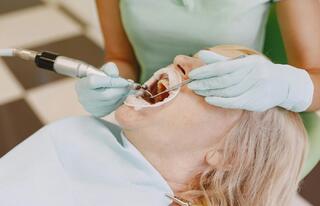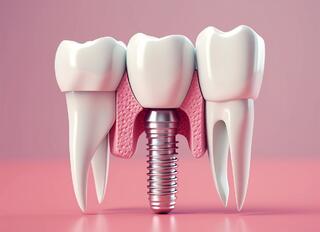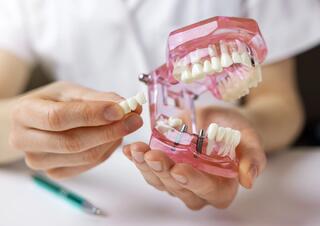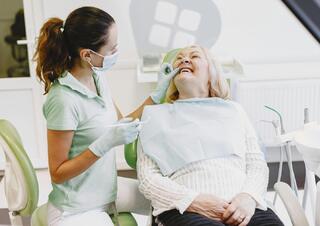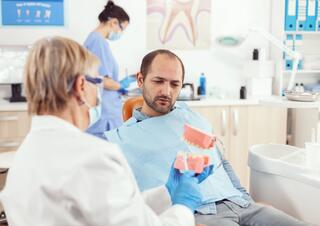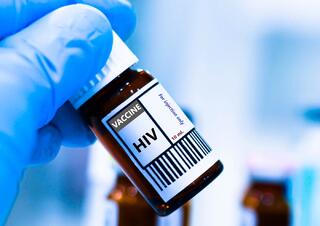What are the Risks of Inadequate Care for Implants?
After the implantation of artificial roots, the patient's body begins to adapt to the foreign object. It's crucial that nothing interferes with the implant's integration.
If care is inadequate, plaque builds up on the implant and beneath the crown, upsetting the balance of beneficial and harmful oral bacteria. If harmful bacteria prevail, inflammation can occur, which often leads to implant rejection.

High-risk patients (like those with diabetes or allergies) need to be particularly careful, as their risk of implant rejection is significantly higher (at least twice as high) due to nutritional or immune dysfunctions in their bodies.
Post-Implantation Care
For the first 14 days after surgery, the sensitive mucous membrane is healing, and the risk of infection is high. Therefore, oral care during this time should be very thorough.
Experts advise:
- Refrain from brushing teeth for the first 24 hours after the procedure;
- After that, clean gently twice a day (avoiding the area where titanium rods were inserted);
- Only clean the gum area at the surgical site with a cotton ball dampened in antiseptic;
- Steer clear of electric toothbrushes, and use a new manual one with soft bristles;
- Refrain from intense oral rinsing, but antiseptic oral baths are recommended at the end of each cleansing.
How to Clean Implants?
During Osteointegration
If the gum is entirely stitched up after implant placement, there's no need for cleaning.
When placing a gingival former or a temporary crown:
- Keep using a toothbrush with soft bristles to prevent harming the gum tissue;
- Maintain a gentle cleaning method - rotating movements from the top of the crown towards the gum;
- Rinse the mouth with a mouthwash or tap water after every meal.
After Osteointegration
Once the osteointegration process is complete, a prosthesis is fitted for the patient. The care guidelines after fitting the prosthesis remain largely unchanged. The only additional requirement is the extra cleaning of orthopedic devices.
- Toothpaste: Dentists recommend using a soft, uniform toothpaste without abrasive elements. For sensitive gums, the occasional use of therapeutic toothpastes, selected by the dentist, may be necessary.
- Toothbrush: Both standard and electric toothbrushes can be used. It's more effective to clean with a specialized mono-tuft brush, labeled "for implants."
- Irrigator: An irrigator is a device that sprays water and an abrasive mixture under pressure. It effectively removes food particles from hard-to-reach places, cleans off plaque, and polishes the prosthesis surface. The irrigator should be filled with special rinses or antimicrobial solutions.
- Dental Floss: Dentists suggest using a special type of dental floss - superfloss. It's slightly wider and thicker. To achieve the best care for implants, apply toothpaste to the floss before cleaning.
- Interdental Brush: These are small, thin brushes of various shapes and lengths. They clean the spaces between teeth and the inside surface of crowns. Both cone-shaped and cylindrical brushes are suitable.
Care Guidelines for Implants Depending on the Prosthesis Type
Dental Crowns
Caring for a temporary crown after the operation involves gently cleaning its surface with a soft toothbrush. Avoid applying too much pressure on the crown. Once the titanium posts are integrated, it is crucial during care to focus on the area where the crown meets the gum. This is where plaque and bacteria tend to accumulate. Using an irrigator is recommended. When cleaning, aim the jet under the base of the crown. The optimal cleaning mode is the standard setting.
Bridge Prosthesis
Surface cleaning of a dental bridge requires the use of a toothbrush and mouth rinses. Plaque and food debris on the gum side should be removed with a special mono-tuft brush with a small head. In addition, interdental brushes, dental floss, and an irrigator are used.
The Most Frequent Mistakes Patients Make in Caring for Implants
| Mistake | Why is it Hazardous? |
|---|---|
| Using an old toothbrush with stiff bristles right after surgery. |
|
| Using an abrasive toothpaste. |
|
| Using a high-power electric toothbrush (30,000 or more rotations per minute). |
|
| Ignoring the correct tooth brushing technique. |
|
Indicators of Inadequate Care for Implants
Minor (adequate oral hygiene improvement is enough):
- Bad breath.
- Noticeable deposits on teeth and prostheses.
- Darkening of the crown or bridge prosthesis.
Critical (require immediate medical intervention):
- Discomfort when chewing, and moving the jaw.
- Sensation that the prosthesis has shifted.
- Redness, swelling, and pain in the gums.
- Movement of the implant or crown.
- Increased body temperature.
No matter how thorough at-home oral hygiene is, it's not enough to completely remove dental deposits. Therefore, dentists recommend that patients undergo professional dental cleaning in the clinic at least once every six months.
Proper care of implants ensures quick integration of the posts and prevents postoperative complications, including implant rejection. Moreover, a patient's diligent approach to oral hygiene significantly prolongs the life of the orthopedic device.
Frequently Asked Questions
Can I brush my teeth immediately after implant placement?
No, it is not recommended to brush your teeth within the first 24 hours after the surgery.
What kind of toothbrush should be used after implantation?
Use a new manual toothbrush with soft bristles.
Is it necessary to use a special toothpaste for implants?
Yes, choose a soft toothpaste without abrasive components.
How often should implants be cleaned?
Clean your implants twice a day, just like natural teeth.
Can I use an electric toothbrush?
Yes, after complete healing, but avoid high power and stiff bristles.
How should dental floss be used for implants?
Use special dental floss for implants, applying toothpaste on it before use.
Is an irrigator necessary for implant care?
Yes, an irrigator helps remove food residues and plaque from hard-to-reach areas.
How often should I visit the dentist after getting implants?
It is recommended to have professional cleaning at least once every six months.

